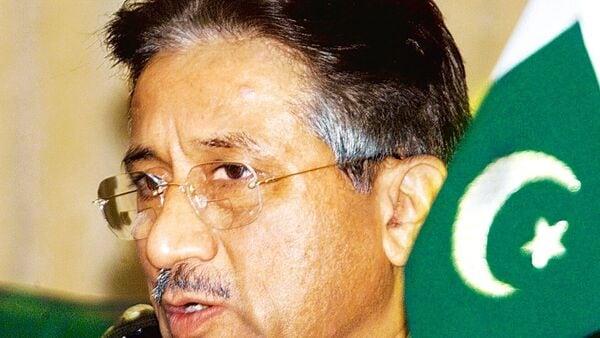
US 'Purchased' Pakistan's Musharraf? Ex-CIA Officer Reveals Washington 'Loves Working With Dictators'
"Let's be honest here. The United States loves working with dictators, because then you don't have to worry about public opinion and you don't have to worry about the media," John Kiriakou, who was the CIA's chief of counter-terrorism operations in Pakistan in 2002, told news agency ANI, when speaking about Osama Bin Laden's escape from the Tora Bora mountains and the hunt for the 9/11 mastermind shifting to Pakistan.
"Our relations with the Pakistani government were very, very good. It was General Pervez Musharraf at the time." the 15-year CIA veteran said.
Also Read | Pak PM Shehbaz Sharif's Sycophancy In Full Display For 3 MinsElaborating, Kiriakou added, "We essentially just purchased Musharraf. We gave millions and millions and millions of dollars in aid, whether it was military aid or economic development aid."
"And we would meet Musharraf regularly, several times a week, and essentially he would let us do whatever we wanted to do," the agency man said.
Kiriakou went on to talk about how Musharraf had to create a balancing act between keeping the Pakistani Army happy while fuelling terror against India.
"He [Musharraf] had to keep the military happy. And the military didn't care about al-Qaeda. They cared about India.
Also Read | Jaishankar on UN@80: 'If maintenance of global peace became lip service...'"And so, in order to keep the military happy and keep some of the extremists happy, he had to allow them to continue this dual life of pretending to cooperate with the Americans on counter-terrorism while committing terror against India," the ex-CIA officer said.
'Pentagon controlled Pakistan's nuclear arsenal'Asked whether the CIA ever feared about Pakistani's nuclear weapons falling into terrorist hands, Kiriakou responded in the affirmative.
"Yes. When I was stationed in Pakistan in 2002, I was told unofficially that the Pentagon controlled the Pakistani nuclear arsenal. Musharraf had turned control over to the United States because he was afraid of exactly what you [the interviewer] just described," was the answer.
Kiriakou's insights into US-Pakistan relations under the Musharraf regime come at a time when the current regime headed by Prime Minister Shahbaz Sharif has been trying to cozy up to the Donald Trump administration.
Also Read | The truth behind the Reagan ad that ended US-Canada trade talks. Was it fake?Pakistan Chief of Army Staff Asim Munir has thrice visited the White House since June, and in his most recent visit in September, the army chief was caught on camera touting rare earth minerals to Trump as Prime Minister Shehbaz Sharif watched on.
Munir's overtures and Sharif watching on not just invited ridicule online, but from their own countrymen, with a Pakistani lawmaker calling out the two for behaving like a "dukaandar (shopkeeper)" and“manager” in front of the US President.
The Pakistani Army chief's visits to Washington this year also came on the back of the recent conflict between the India and its nuclear-armed neighbour, triggered by New Delhi's response-Operation Sindoor-to the Pahalgam terror attack of April 2025.
Legal Disclaimer:
MENAFN provides the
information “as is” without warranty of any kind. We do not accept
any responsibility or liability for the accuracy, content, images,
videos, licenses, completeness, legality, or reliability of the information
contained in this article. If you have any complaints or copyright
issues related to this article, kindly contact the provider above.


















Comments
No comment